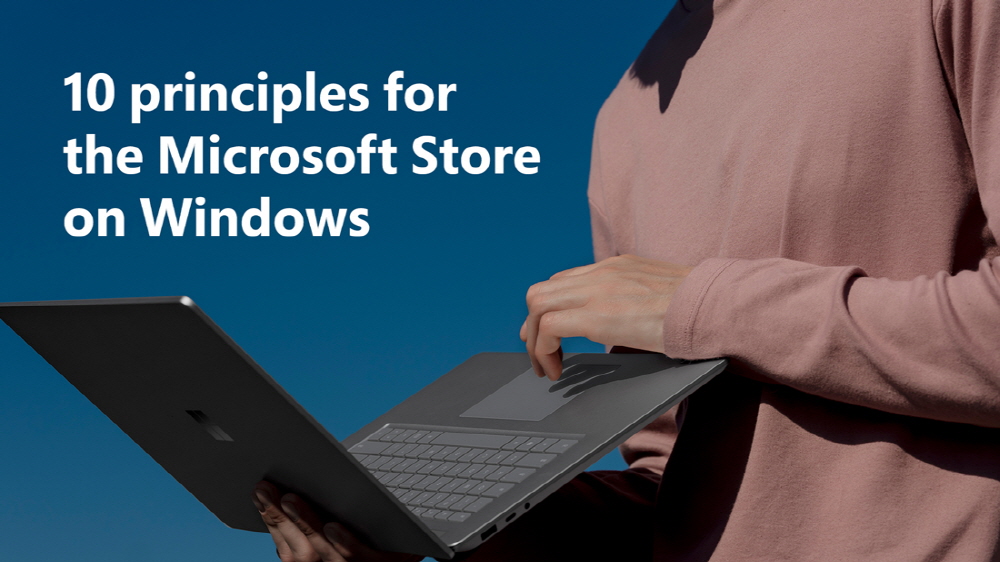
With the goal of accelerating innovation in choice fairness, Microsoft has published its 10 Principles of Store Microsoft Applications for Windows. This principle is in accordance with the App Fairness Alliance CAF proposal by Epic Games, Spotify, and Tile to improve the App Store rules against Apple and Google. Accordingly, the Microsoft Store for Windows 10 is announcing the adoption of the Ten Principles.
Microsoft Vice President Rima Alaily confirmed that he had expressed concerns about the App Store on other digital platforms so far in a blog about the App Store released on October 8 (local time), and followed the CAF proposal to implement it. The Microsoft Store for Windows 10 has announced the adoption of the Ten Principles.
It is not an exaggeration to say that this principle almost pointed to Apple, although it did not designate a specific target. The first is that developers are free to choose whether or not to distribute their applications for Windows through the App Store. Competing App Stores on Windows are not blocked. This suggests that Apple does not allow third-party app stores.
Second, based on the developer business model, it does not block Windows applications or applications based on how content and services are delivered, such as whether the content is installed on the device or streaming from the cloud. It reminds me of the App Store imposing restrictions that are difficult to cancel after blocking third-party streaming game services.
Also, the application cannot be blocked by what a developer chooses as the payment system they use to process in-app purchases. It seems that developers don’t force them to sell on apps they don’t want to sell.
In addition, it is revealed that there is an option of third-party app stores such as Steam and Epic in addition to the Microsoft Store for apps for Windows 10, and that developers can distribute applications without restrictions on various revenue sharing conditions and by themselves. The word Apple is not used in the blog, but it reminds me of the App Store in every way.
Here are the ten principles.
- Developers are given the freedom to choose whether or not to distribute their applications for Windows through the Microsoft Store. Microsoft can’t block competing App Stores on Windows.
- Depending on the delivery method and business model, such as whether the content is installed on the device or streamed from the cloud, you can’t block applications on Windows.
- Depending on the payment method the developer uses to process purchases in the app, it cannot be blocked.
- Microsoft follows the principles of interoperability to provide developers with timely access to information about the interoperability interfaces used by Microsoft on Windows.
- All developers can access the App Store that meets objective criteria and requirements such as security, quality, content, and digital safety.
- The Microsoft App Store charges reasonable rates that reflect competition with other Windows App Stores, and does not force developers to sell things they do not want to sell within their applications.
- The Microsoft Store does not prevent developers from communicating directly with users through apps for legitimate business purposes.
- The Microsoft Store holds its own applications on the same basis as competing applications.
- Microsoft does not use personal information about apps, application, and store data at will.
- We maintain transparency on rules and policy opportunities for Microsoft Store promotion and marketing, continue to operate objectively, notify changes, and support due process for resolving disputes.
However, there is also a clue that this principle does not apply for the Xbox series, saying that the business model for game consoles is significantly different from that of PCs or smartphones. The reason, he argues, is that game console makers make significant investments in hardware development and sell them at below cost or at low profit margins, creating a market that will benefit game developers. The iPhone is also making a significant investment in hardware, but it can be seen that they want to avoid escalating the game console business anyway. In any case, Microsoft’s declaration draws attention to the future development of whether it will give momentum to the US Congress’s move to split the CAF and GAFA businesses, which can be called anti-Apple alliances. Related information can be found here.


















Add comment